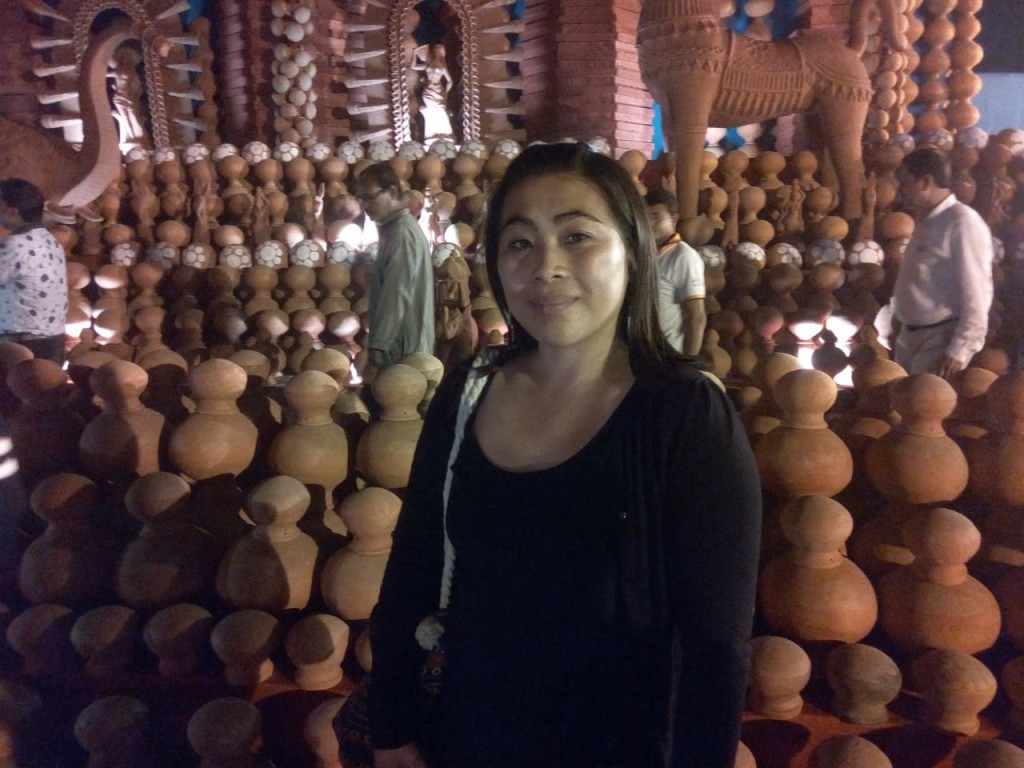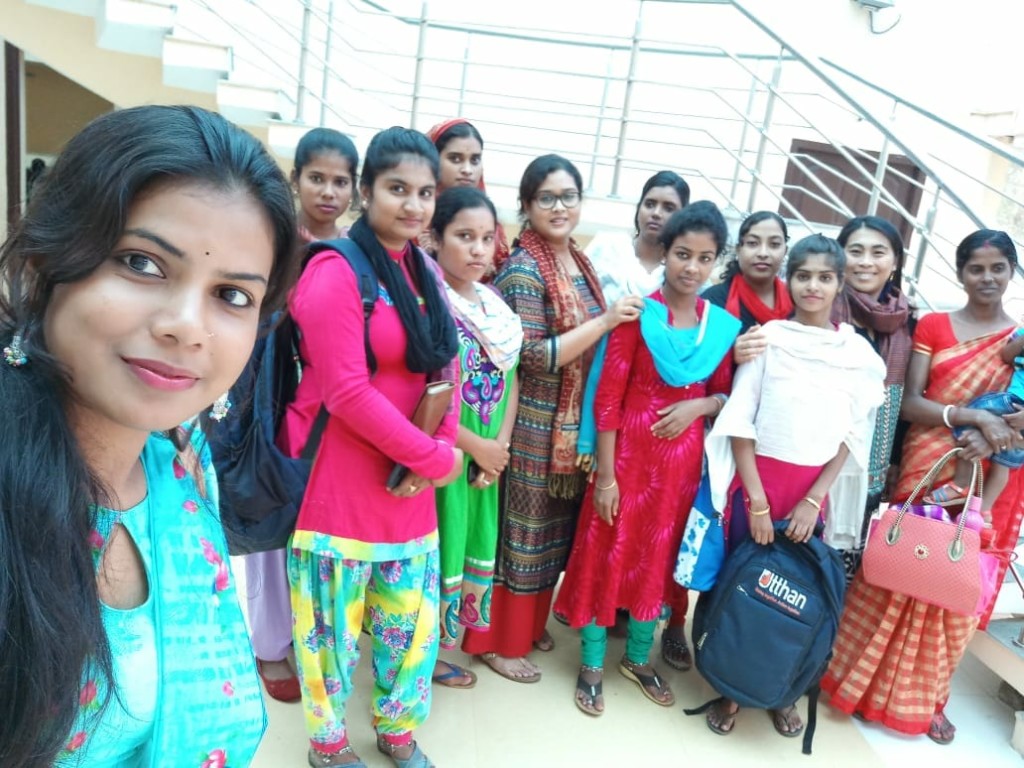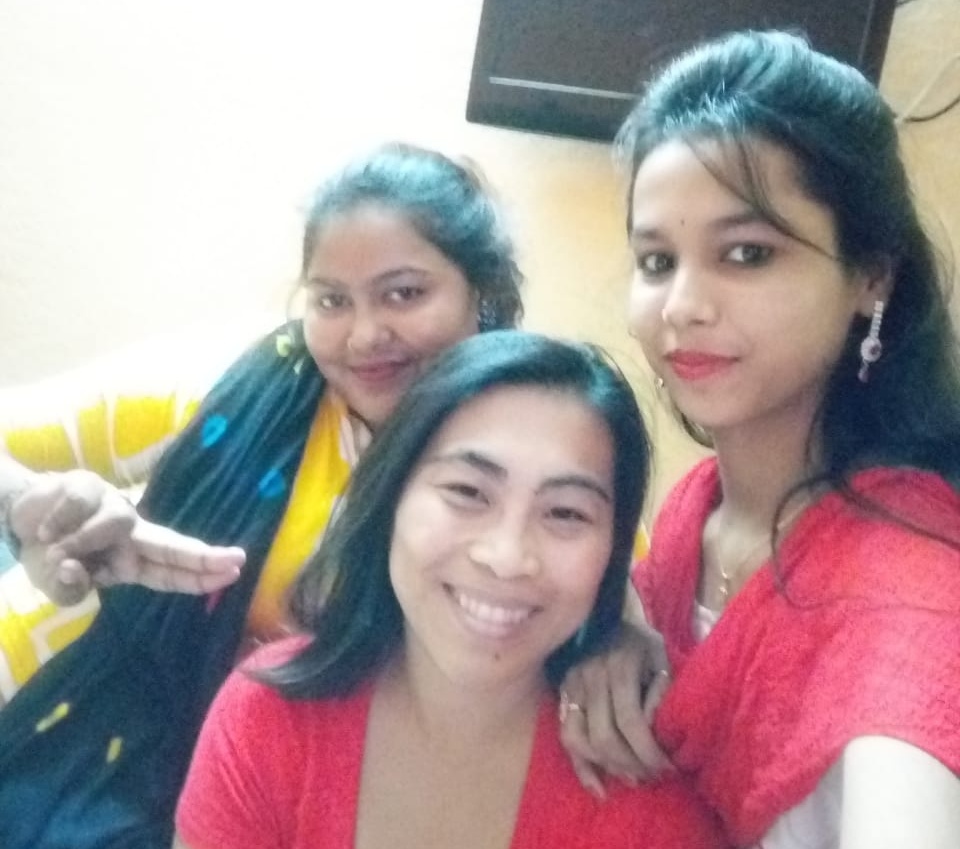No words need to be spoken, no other connection is necessary; a strange solidarity appears and will stay; that is enough.
I met Minh Dang on a mild November morning in Kolkata about an hour before we were introduced formally. She is wearing a blue and white cotton print skirt and a white blouse. She is a small woman, but I can see she’s robust and fit.
Later, over a lunch of local Bengali fare—fish curry, a vegetable curry and steamed rice—she tells us that she likes to play soccer and go for long runs.
Minh has come all the way from England to meet a group of sex trafficking survivors from Bengal—they were organised into a council called Utthan in June 2016 with help from Sanjog, and they do anti-trafficking advocacy work under the wing of Sanjog, the human rights nonprofit I work for.
Sanjog is committed to gender justice and social equity. The girls and women who have come together under the Utthan umbrella are survivor participants in a model of restorative care for other sex trafficking victims, through youth/adult partnerships and trainings on gender, sexuality, violence, stigma, shame, resilience, and capacity building.
In its early days, Utthan did tentative visits to the homes of newly-repatriated survivors, sharing their stories of survival to help build a fleeting sense of solidarity. These visits were not backed by any real resource-based strength-building to facilitate the rehabilitation of the new survivor, whose community and family might have been up in arms against her, under the burden of stigma an entire powerful coterie may have thrust on them.
With continued mentorship, Utthan is now at a place where they have been able to do advocacy at the national level, writing to local duty-bearers and bureaucrats for the rights of survivors with confidence and legal knowhow.
The reason Minh made this trip to Bengal is to get hands-on experience of how survivors in this part of the world are recovering from the trauma of being trafficked. She runs a young nonprofit called Survivor Alliance, launched in April 2018, along with a few other trafficking survivor leaders in the USA.
Incidentally, Survivor Alliance has reached over a hundred survivors of trafficking already, uniting and empowering them; many are engaged in anti-trafficking and anti-slavery activism. Utthan has 17 active members and represents 121 women from Bengal.
Minh would know about rebuilding and reclaiming shattered lives. She is a survivor herself. She grew up in a family of Vietnamese origin in California, USA, where her sexual abuse began at the hands of her father when she was three.
She was sold for sex by her parents when she was ten, and learned about life in the interior of red light districts and brothels. She ran away from home at twenty and found a room with a hot plate in a shared boarding house.
She was finishing her undergraduate degree – her father wrote out a cheque that would let her finish her final year – and made a few friends. A breakthrough came, which sorted her money matters and brought her some emotional comfort: she worked as an executive director on actress Jada Pinkett Smith’s show Don’t Sell Bodies. Despite her trauma and depression, she went on to take up doctoral work at the University of Nottingham.
Minh had planned to meet the Utthan members ever since they had been members of Survivor Alliance, and had a warm and interesting Skype chat. The promised agenda had been to trade stories of survival, of showing Minh first-hand, how they (Utthan) lived and worked on scanty stockpiles of physical and social support, and to involve her in some local celebratory ritual. Minh came at Diwali.
The women from the Utthan advocacy group she was meeting with for a four-day trip had vastly different lives in some ways, and yet uncannily similar ones in others.
Utthan women are from low-income rural families, many haven’t finished school, and their chances of accessing opportunity or amusement or any sort of ‘break’ have been limited. What they have seen of the world outside their villages has been because of their experiences of having been trafficked. Some were taken away by the inducement of a neighbour or even a relative; some by a stranger who befriended them through a call from an unknown number; some lured into commercial sex work in a faraway destination after a kidnapping.
At the end of these meetings, what all the girls from Bengal and the woman from Nottingham could agree on is that they are all fighting for justice, and this is something that holds them together.
No words need to be spoken, no other connection is necessary; a strange solidarity appears and will stay; that is enough.
All these women have known the harshest exploitations. When Minh told her story, we interpreted it for Utthan, and immediately a connection was made. Stories spilt from Tumpa, Firoza, Nasima, Asma and others and filled the room. There was talk about feelings of isolation, loneliness and betrayal. Nasima remembers a long car ride taking her farther away from home as her drugged body unlearned protest. Tumpa recalls a neighbourhood brawl about her; everybody called her a “loose” woman.
Asma beams with gratitude – she has friends again, since Utthan meetings have started happening twice a week. Firoza is thankful that she has started college.
Minh didi has accomplished so much,” Rexona says. “ I want to get an education like her,” adds Lilufa. “We want to be like her,” other voices echoed.
With Minh in the room, there seemed to be an additional shred of hope, the presence of a possibility that might otherwise be overlooked. With Minh, a miracle seemed attainable.
The Utthan girls—and Minh, on a different continent—had felt friendless, depressed, violated. Nobody had understood what they had felt, how they had cried themselves to sleep during the nights. They had been shamed, been made fun of, become sure that there would never be a day when they would laugh again. Tumpa said that a little bit of her heart had already withered and died inside her.
Utthan also talked about their upcoming plans – how they are fighting to have a new anti-trafficking bill listed in Parliament by lobbying with the Ministry of Women and Child Development and making recommendations to anti-trafficking policy at the national level.
Minh went out to the homes of survivors and shared the plans of the Survivor Alliance. “We want to grow our membership and ensure that all members experience a benefit from joining SA. Our organisational practices, cultures, and infrastructure need to be better developed to sustain our work,” Minh said.
She emphasised that fundraising would be essential for paying overhead costs and hiring full-time staff and hosting a tri-annual World Congress with members from each continent. Minh believes that trafficking survivors can eventually become consultants to governments developing anti-trafficking
policies, and then forming a social enterprise that can help design rehabilitation and training programmes for them, creating employment opportunities for them to lead productive lives.
Over email, Minh writes about her time in India. “What stands out about my visit is that I experienced little to no discomfort or hesitancy with Utthan or Sanjog. This is hard to describe, but at one point, I realised that I was just ‘being’ with the Utthan members. Yes, I had a presentation and a couple of talks, but I most enjoyed being in shared company. Even when we had to communicate without words, I felt welcomed and with like-minded people so to speak, people who cared about others, who are fighting for justice, and who equally are looking out for how they can learn and grow. I found that desire to connect very mutual.”
Utthan thinks the same. Minh’s visit has left them enlivened and inspired, common suffering has brought them close. She has left the Utthan girls a little note we translated for them.
“With time, we plant small seeds and some die, and some live in us. I hope you keep fighting to water the seeds in your heart that bring you joy.”
Article Credit :- Better India



